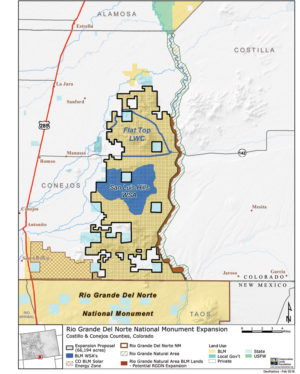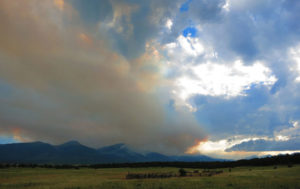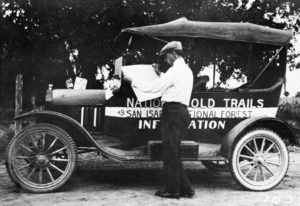By Martha Quillen
What happens when catastrophe strikes and emotions are running so high that words are inadequate? People often gather at memorial services or disaster sites to express their sorrow. They light candles, leave tokens, say prayers, sing, cry and comfort one another. And for awhile, they feel as if they are one people, mourning together.
But that seldom lasts. Before long, citizens start clamoring for their government to do something. But they almost never agree on what. Investigate more people? Make arrests? Deploy the army? Detain dissidents and immigrants? Fortify the borders? Outlaw Islam? Exile foreigners? Torture someone?
Some citizens want the government to do all of that, and some want none of it. And our divisiveness mounts.
In recent months, there have been a lot of political speeches made in response to senseless violence in Paris, Brussels, Orlando, New Orleans, Baghdad, Dallas, Nice, Baton Rouge …
And clearly, leaders and candidates need to say something. But calls for action seem rash, and promises to stop such mayhem, empty. And as for the urge to retaliate?
Well, that’s exactly what many of the terrorists think they’re doing: they believe they’re getting even for prior atrocities that resulted in the death of theirloved ones or the loss of their homes – in Afghanistan, Iraq, Latin America, and even in American and European cities.
But that’s sheer insanity. Human beings aren’t interchangeable, and murdering innocents doesn’t resolve anything. Yet hatred, vengeance, and war persist. So what’s a leader to do? Or say?
In far too many cases, it would have been advantageous for our leaders to say less. For example, when the news was still showing people fleeing death in Nice, it probably would have been better if Donald Trump had refrained from complaining about his political opponents.
And in the aftermath of mass murder, it might have served President Obama better to excoriate the perpetrator of the violence rather than questioning American prejudices. Obama is a silver-tongued orator to be sure, but was it wise or appropriate for him to evaluate America’s race relations and prejudices at a memorial service for slain officers in Dallas?
When gunfire erupted during a peaceful demonstration, Dallas policemen ran toward the danger to stop the assailant and help people escape. Many of the men in Obama’s audience had risked their lives to save others, and they didn’t deserve to be lectured at the burial of their comrades. Funeral services should be about the deceased and their friends and families, not about politics.
[InContentAdTwo]
But I’m not writing this to condemn President Obama, who is usually as mannerly as politicians come. I’m using the normally circumspect Obama to illustrate a point: that all of this political blaming and shaming has gotten totally out of hand, and if Obama can fall prey to it, anyone can, which is troublesome, since insensitive politicking isn’t just offensive, it’s also ineffective.
Who among us actually responds positively to being criticized by strangers? Yet delivering pompously insulting political sermons has become so standard that politicians, pundits and party participants don’t even seem to realize that they’re being obtuse.
Salidans, for example, didn’t really vote against the Moving Forward platform three times by mistake or because they were duped. Oh, sure, a person or two may have said that they made a mistake. But the people I know who voted for home rule, and for spending more of their tax money on roads, and for the new council members, did so because that’s what they wanted. Yet Moving Forward activists repeatedly justified reversing their input by claiming it was bogus.
In the beginning, I think the opposition might have been persuaded to compromise, but at this point I suspect they’ve been insulted into rigidity. In fact, I think Salidans were fairly centrist when all of this started; now many are just plain mad.
And that’s what’s been happening all over the U.S., especially where people from different demographics live together. Modern campaigns insult and vilify the opposition, calling them names, and labeling them stupid, uneducated, unskilled, dishonest, corrupt, elitist, or whatever it takes to …
What? What is it that power politicking is trying to accomplish? Because whatever the intent is, the primary advance is in hostility, inflexibility and division.
Clearly, we need to try a different direction. And perhaps we could start by taking a hint from Abraham Lincoln, who was in an even worse fix than we are when he reminded his audience that there were things worth uniting over. “Four score and seven years ago, our fathers brought forth on this continent a new nation, conceived in Liberty and dedicated to the proposition that all men are created equal. Now we are engaged in a great civil war testing whether that nation, or any other nation so conceived and so dedicated can long endure.”
And endure it did, although not always justly.
Presumably it’s not too late to call for unity, justice and equality for all, again.
No matter what approach we choose, we are not likely to reconcile Black Lives Matter activists with police departments any time soon. But by embracing a more egalitarian viewpoint, we can unite some of their goals. Yes, black lives matter, they matter every bit as much as white lives, and policemen’s lives matter just as much, too. And justice matters, which clearly means that police departments and communities shouldn’t ignore or cover up for dirty cops or fail to reward good ones.
And once we’re looking at America in terms of making sure that everyone matters, maybe we should resurrect some of our old fervor for affirmative action to ensure that quality schools, hospitals and emergency facilities are available in struggling Rust Belt cities and depressed agricultural areas, regardless of the race or ethnicity of the population.
In essence, Americans need to look out for one another. And since that is not a new idea, there are already scads of slogans to get us started. We could launch the New Deal, Fair Deal, Square Deal, New Frontier or Great Society. Or we could adopt my favorite from just up the road, which comes with a fitting parable.
In 1859, word of gold in Tarryall Creek brought prospectors flocking, but the early birds nabbed all of the good sites. Soon Tarryall earned the nickname Grab All, and the town of Fair Play was founded nearby. Tarryall waned and became a ghost town, but in 1896, a new Tarryall was built. And it also died.
Yet Fairplay lives on, and its moniker could serve as an excellent maxim, since a deal is only a deal, which implies something temporary and finite, but Fair Play suggests that everything you do should be done fairly.
It’s ironic that Tarryall didn’t tarry and Fairplay lived on – and also a bit Disneyesque.
You can’t study history and conclude that Fair Play will ever totally prevail. Nor can you claim that the town of Fairplay always lived up to the name. When I first came to appreciate the place, circa 1977, it had a wicked reputation as a notorious speed trap.
Fairplay’s speed limits are reasonable these days, and are far more visibly posted than they used to be. The town is now home to a really impressive replica of a mining town, replete with museum displays, and seems none the worse for wear. But I have no idea what its residents worry about; you’d have to ask them.
Issues regarding growth, development, public investment and immigration will probably always incite arguments. But people committed to unity and fairness should be able to work things out.
Martha Quillen also likes the name Bonanza, which should surely inspire something.




